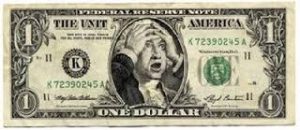There is a colorful Yiddish word, “mishegas” which affectionately refers to one’s “craziness” about something. Most of us have strong feelings when it comes to money; for some of us, those passions are what brought us to this profession. The spectrum of personal “money mishegas” extremes runs from spendthrifts to overindulgence, and everything in between. Most of these attitudes are adopted during our formative years, much like how we remember and idealize our hometown sports team roster from our youth even as adults. Fast forward to today – it is critical to remember that the lens that you use to view money may not at all dovetail with that of the donor across the table from you.
For me, while I grew up in a family of modest means, I did have exposure to transactions involving large quantities of cash. My father was a jeweler in Chicago, and I used to hear at the dinner table his stories of the large purchases of the day. I would also occasionally go to the airport with him to “meet a guy” who would get off a plane to exchange a brief case full of cash for a brief case containing jewelry (before the days when this sort of thing was against the law). There is nothing like holding a brief case full of Benjamins to affect your perspective about money.
We cannot help but bring our own personal “money mishegas” to our jobs, but we cannot let these biases affect how we interact with donors, formulate ask strategies, and ask for a gift. For you personally, a magnificent gift might be a $10,000 check you write to a beloved NPO, but for your leadership donors, that figure may be $1 million or more. While it is human nature to factor in your visceral response to day-to-day and business interactions, it is important for advancement professionals and volunteers to resist these limiting knee-jerk responses. Just think about how much money you could be leaving on the table because of your asking comfort level.
Our biases can and often do interfere with our fundraising successes, and not just when it comes to face to face interactions. Consider this: time and time again, when training large groups of professionals and volunteers, I ask trainees to raise their hand if they like getting direct mail appeals. Surprise, or not… no one has ever raised their hand. And yet, direct mail campaigns, essential and effective components of most NPO’s fundraising activities, are often frowned upon by staff and volunteers…because they don’t like them. Again, think of all the gifts unrealized – resultant from this not so transparent bias.
Advancement professionals and volunteers need to focus their fundraising energies on the donor’s interests; emotions surrounding the organization, programs, and mission; and on capacity research that will help to quantify a realistic and respectful ask. The time is now to understand and “pay off” your own personal “money mishegas” liabilities… that’s solid fundraising advice you can take to the bank.
Your takes:
- Understand your own personal “money mishegas” and consider ways it may be a limiting factor in your fundraising success.
- Work with volunteers to help them understand their attitudes about money so you can work with them most effectively.
- Formulate your solicitation strategies objectively so you are at ease discussing large gifts with donors.


